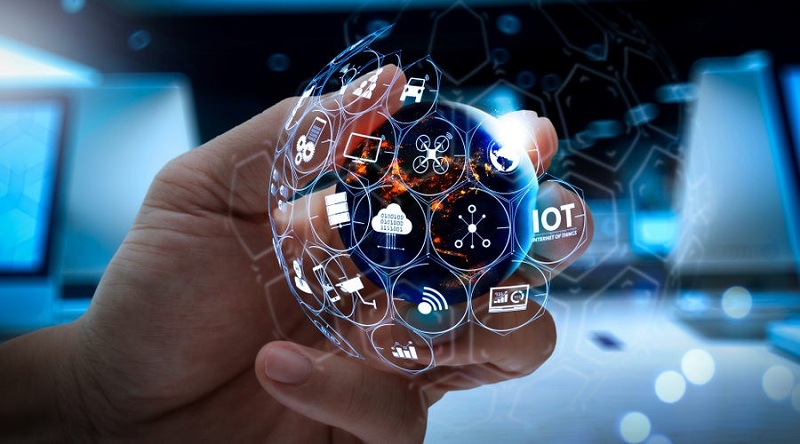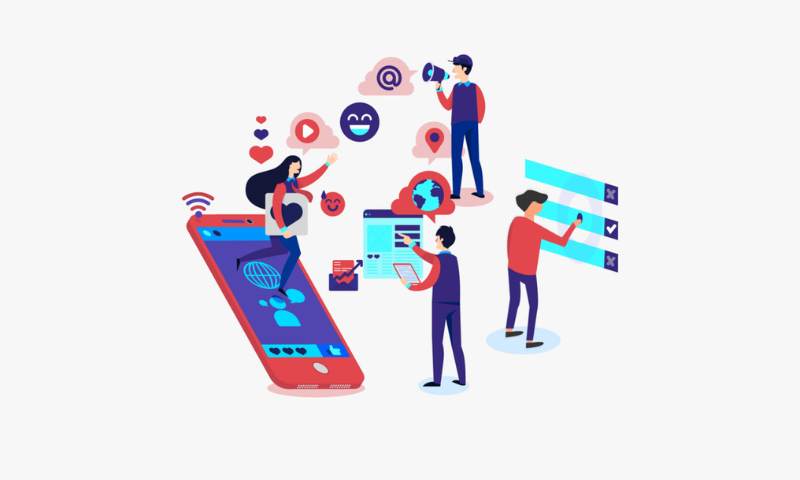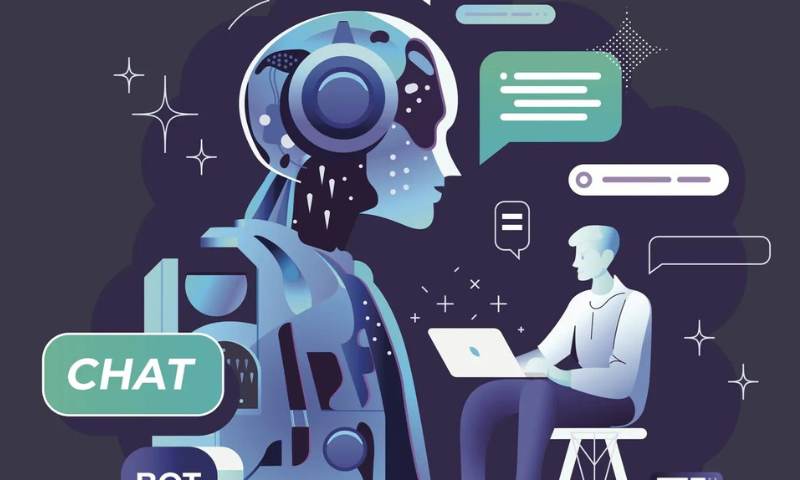Emerging Technologies: Unveiling the Future of Digital Economy Platforms
Imagine a world where your online deals seal themselves and your phone predicts the market. That’s right, we’re diving deep into the Emerging technologies for digital economy platforms. Blockchain isn’t just digital gold; it’s reshaping how we trust and trade. And get this – with smart contracts, we’re turning handshakes into code that never breaks a promise. How cool is that? Next up, AI and machine learning aren’t just buzzwords. They are real game-changers in the financial space, getting smarter at knowing what customers want and forecasting financial storms before they hit. We also can’t ignore the duo that’s changing the game: IoT and 5G. They team up to make buying and selling freaky fast and super smart. And we can’t chat about online platforms without talking shop on cybersecurity. Guess what? Advanced tech like quantum computing is our new bodyguard in the digital age. Let’s jump in and look at how these technologies aren’t just emerging; they’re here, and they’re the building blocks of today’s digital platforms.
The Rise of Blockchain and Smart Contracts in Digital Economy
Transforming Transactions with Blockchain
Blockchain is changing how we handle money online. It’s a safe and shared way to record info. With blockchain, every deal is public. So, no one can cheat or change the data. Banks and businesses are starting to use this for better security.
For example, when you send money, the blockchain makes sure it goes to the right person. It’s quick and works 24/7. And since the data is spread out, hackers have a hard time attacking it. So, your money and info stay safe.
Fintech, or financial technology, loves blockchain. It cuts out the middleman, like a bank or lawyer, in deals. This means lower fees and faster times for your money to get where it needs to go.
Blockchain technology is growing in finance. It helps with everything from simple money moves to big business deals. It also fits well with other tech trends. AI, or artificial intelligence, can use blockchain records to learn and offer better advice on money choices.
Tech brings us new ways to move money that are safe, easy, and fast. Blockchain takes a leading role in this. It’s an exciting time with much more to come as we learn and build on this technology.
Smart Contracts: Enforcing Agreements Digitally
Smart contracts help you agree on deals with confidence. A smart contract is like a normal contract, but it’s digital and automatic. Once you and the other person agree on the terms, the contract self-executes. You don’t need a third party, like a lawyer, to check on things.
You set rules in the smart contract. If those rules are met, the contract does what it’s supposed to do. For example, say you’re a freelancer. You finish a job, and the smart contract sees the work is done. Then, it makes sure you get paid right away. This is good for business, as it’s clear and fast.
Smart contracts are a part of fintech innovations. They help businesses work together better. They’re part of what’s called decentralized finance. That means they don’t rely on one place or group to work. Instead, they use blockchain. This makes them strong against fraud and mistakes.
Businesses are looking into smart contracts more. They’re seeing how useful they can be. With smart contracts, deals are safer and can happen anywhere. It’s an area with a lot of room to grow and improve how we do business online.
In sum, blockchain and smart contracts are taking digital economy platforms to new heights. They make things smoother for everyone—folks like you and me, and big companies. They’re keys to a future where tech makes money matters safer and easier for all.

Leveraging AI and Machine Learning for Enhanced Financial Operations
AI-driven Customer Insights and Personalization
Imagine walking into your favorite coffee shop. The barista knows your name. Your drink starts brewing the moment you step in. That’s personalization. Now, imagine your banking app greeting you just like that. It offers services just right for you. This is not a far-off dream. It’s here today, thanks to AI.
Fintech is now personal, thanks to AI-driven insights. These insights help banks see what you like. They make sense of vast data in no time. This way, banks offer you exactly what you need. Better service, fewer wasted offers – this is a win-win.
With AI, saving and spending get smarter. It keeps an eye on your habits. It guides you to smarter money choices. AI makes it all simple and personal. This change is big. It’s like moving from maps to GPS in your car. It’s more than convenience – it’s a smarter journey.
Machine Learning Algorithms for Accurate Market Predictions
Now let’s talk about the future. Not flying cars, but future market trends. That’s where machine learning shines. It looks at patterns from the past. It then guesses what comes next. These guesses are not wild shots in the dark. They’re educated, informed, and precise.
Finance pros use this tech to bet on the right horse. For you, this means investment advice that hits the mark more often. It leads to less risk and more gain. The key here is getting it right. Precision matters, as every guess is money at stake.
But how does this all work? It’s much like learning to catch a ball. The more you practice, the better you get. Machine learning algorithms practice with data. They learn the game of predicting. Over time, they get really good.
In essence, AI refines customer service and machine learning fine-tunes predictions. Both stand to reshape the landscape of personal finance and investing. The shift is toward tech that understands you and looks ahead. It’s all about better financial health and growing your wealth. With AI and machine learning, we’re not just dreaming of the future; we’re building it.

Integrating Internet of Things (IoT) and 5G in Commerce
IoT: The Backbone of Smart Commerce Ecosystems
IoT makes things smart. It connects items to the internet. This means your fridge, car, and watch can all chat online. They can tell you when you’re low on milk, where you parked, or how many steps you took. In shops, it’s even cooler. Stores use IoT to track what you buy and make sure shelves are always full. They can also send you deals straight to your phone when you walk by your favorite snacks.
IoT in commerce helps shops understand what you like. Shops can use this info to suggest things you might want to buy. It makes shopping fast and personal. No more hunting for things on long lists. Your phone can guide you right to them.
And when you want to buy something, IoT helps there too. You don’t need to wait in lines or even take out your wallet. Just pick up items and walk out. The store knows what you took and bills you online. It feels like magic but it’s just tech.
For business folks, IoT saves money and time. They can keep track of their goods better. They can also make sure machines work well and fix them before they break. This makes everything smooth and quick. Happy shop owners mean happy customers.
5G Networks: Accelerating Online Transaction Speeds
Now, think about mobile internet. 5G is the latest and it’s super fast. It makes things like downloading movies or video calling really smooth. But it’s not just for fun. 5G in shopping changes a lot.
When you buy online, you don’t want to wait. You click and expect things to happen right away. With 5G, they do. If you’re buying a video game, it can download in seconds. Not enough time to make a sandwich while you wait anymore.
5G also means stores can handle more people buying at the same time. Like on Black Friday when everyone is shopping for deals. The stores’ websites won’t crash. So, you won’t miss out on that sweet deal just because the internet was slow.
And, when shops talk to each other or to the big warehouses, 5G helps them do it fast. They can tell each other what’s selling out or what’s not popular. This keeps shops full of the goodies you want.
But 5G is more than speed. It’s also about talking to many devices at the same time without getting mixed up. So shops can keep everything connected without a glitch. Every scanner, sensor, and camera in the store can work together. They make sure the store is safe and has everything customers need.
Both IoT and 5G make shopping cool and easy. They help you and store owners have a better day. From smart stores to speedy service, technology is making shopping a real treat.

Adopting Advanced Technologies for Improved Cybersecurity and Efficiency
Cybersecurity Measures in Protecting Online Platforms
Safe online spaces matter to us all. Hackers are sneaky, but we can stop them. We use tough cybersecurity to guard our digital life. Think of it like a bank vault for our online world. Tech like blockchain makes our data tough to mess with. They link info in a chain that’s hard to break. Cybersecurity in digital platforms keeps our secrets safe.
We’ve got smart tech for keeping an eye out. AI helps us learn who uses our stuff and how. This way, we spot the bad guys fast! AI-driven customer insights are key. They help us make sure you only see what’s right for you. And what makes your online time safe and fun.
Machine learning is a brainy tool for us. It can look at tons of market stuff and learn from it. Machine learning for market analysis is a game-changer. It helps us guess what might happen next. So we can make smart choices. Big data in e-commerce helps here too. It looks at what everyone buys and does. Then, it helps us make shopping online better for you.
The Role of Quantum and Edge Computing in Fintech
Now let’s talk about two cool tech words: quantum and edge. Quantum computing is all about speed. It crunches numbers like a superhero! Quantum computing for data processing is the future. It can sort through info way faster than normal computers. This means we can solve tough problems quick.
Edge computing is like having a helper close by. It deals with data right where it’s made. Edge computing for low latency makes things run without delays. Let’s say you use a fintech app on your phone. Edge tech helps it work smooth and fast. No waiting or glitching.
Both these techs mean fintech works better. They make sure your money moves quick and safe. When we say 5G impact on online transactions, we mean this. It’s all about making your online shopping or banking zoom.
So, when we use big words like blockchain or quantum, it’s for you. We want your online money moves to be swift and secure. And most of all, we want you to trust the tech that keeps your cash safe. That’s what I work on every day—smart, safe ways for you to bank and shop online!
In this post, we covered how tech makes business better. Blockchain and smart contracts change how we deal with money. They make things safer and faster. We saw how AI helps learn what customers like. It can also guess where the market is going. Next, we talked about IoT and 5G. IoT connects all our devices. 5G makes everything online run super fast. Finally, we looked at keeping money safe online. We need good security to stop hackers. New computer tech helps us do that.
These tools are big deals in our digital world. Using them right can make your business lead the pack. Always be ready to learn and get new tech skills. Stay smart, stay safe, and stay ahead! Keep checking back for more tips on winning in the digital economy.
Q&A :
What are the latest emerging technologies enhancing digital economy platforms?
In today’s rapid digital evolution, a host of advanced technologies are driving growth and innovation in digital economy platforms. Among the forefront are Artificial Intelligence (AI), Blockchain, the Internet of Things (IoT), and Quantum Computing. These technologies are reshaping the way businesses operate by offering new levels of efficiency, security, and data analysis capabilities.
How is Blockchain influencing digital economy platforms?
Blockchain technology is revolutionizing digital economy platforms by introducing enhanced levels of security and transparency. Its decentralized nature allows for secure peer-to-peer transactions without the need for traditional intermediaries, reducing costs and improving trust among users. Blockchain is particularly influential in financial services, supply chain management, and smart contracts.
What role does Artificial Intelligence play in digital economy platforms?
Artificial Intelligence (AI) is a game-changer for digital economy platforms, delivering personalized user experiences and optimizing operations. AI algorithms can analyze vast amounts of data to forecast market trends, automate customer service with chatbots, and optimize logistics. By leveraging AI, digital platforms can gain a competitive edge through improved decision-making and efficiency.
Can the Internet of Things (IoT) enhance digital economy platforms?
Absolutely, the Internet of Things (IoT) plays a critical role in enhancing digital economy platforms by connecting physical devices to the internet. This connectivity enables the collection of valuable data from various sources, which can be analyzed for insights into consumer behavior, supply chains, and operational efficiency. IoT fosters innovation in product and service offerings and can lead to more responsive, user-centric platforms.
What impact could Quantum Computing have on the future of digital economy platforms?
Quantum Computing holds the potential to revolutionize digital economy platforms with its immense computing power. It could enable the handling of complex problems and data sets far beyond the scope of classical computers. Quantum Computing could significantly reduce processing times for algorithms, optimize logistical operations, and improve encryption methods for enhanced cybersecurity, which could be transformative for financial services, market analysis, and personalized services within digital economies.



